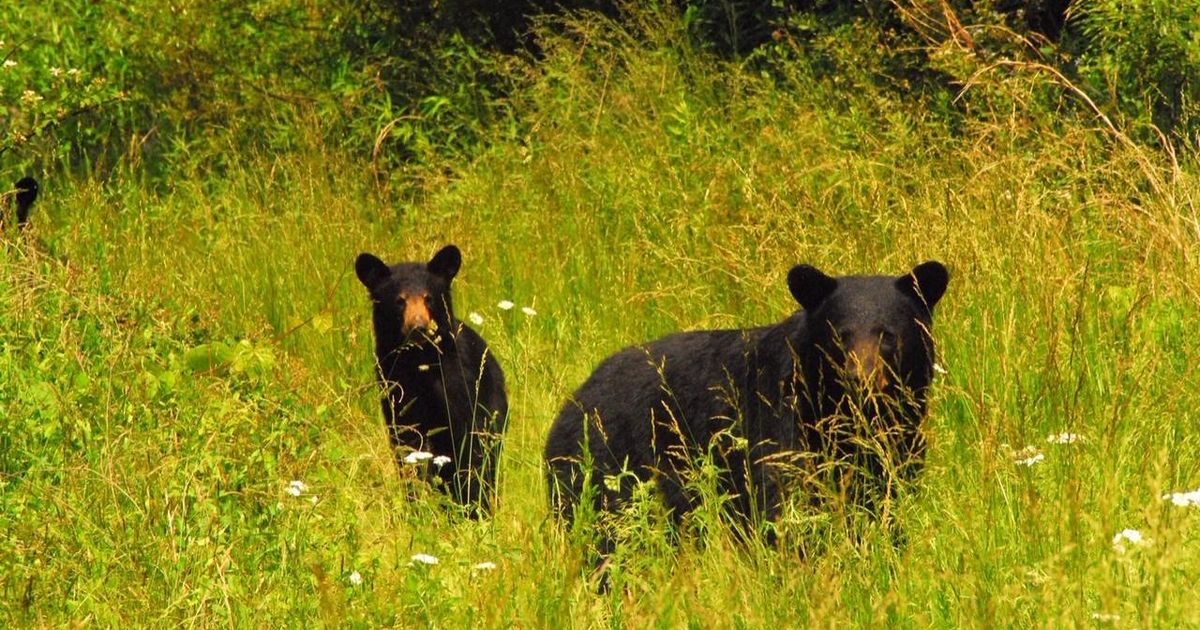The N.C. Wildlife Resources Commission (NCWRC) is reminding the public about black bears’ heightened appetites ahead of their hibernation season.
NCWRC said that black bears significantly increase their food consumption starting now through fall to prepare for colder months when natural food is less available. Their extreme appetite is called hyperphagia, and they are not picky eaters.
“In late summer through fall, black bears are consuming a variety of hard and soft mast species, from acorns and hickory nuts to pokeberry, cherry, grapes and black gum,” said black bear biologist Jenna Malzahn. “They’ll also take advantage of agricultural crops, such as soybeans and standing corn, as well as bird feeders and unsecured garbage and compost.”
Bears are opportunistic eaters, the NCWRC said. During hyperphagia, black bears travel extensively, sometimes beyond their home ranges, to search for food for up to 20 hours per day.
This results in more chances for humans and bears to come in close proximity with each other. That’s why the NCWRC experiences an increase in bear reports in public and residential areas, in the woods and on the roadways.
The agency suggests some ways to avoid bear encounters to help keep both humans and bears safer. Bears are typically most active at dawn and dusk. Steps to avoid a vehicle collision with a bear or any wildlife include:
If driving with a passenger, get them to watch out for any wildlife.Always drive at a reasonable speed and follow the speed limit. At night, consider driving below the speed limit to give yourself more stopping time and scan the sides of the road for eyeshine at night. Pay extra attention in areas where bushes and trees are close to the road. Most insurance companies advise that if you see an animal in the road, honk your horn repeatedly, flash your high beams and try to avoid it if you can do so safely. Do not swerve into another lane or slam on your brakes unless you know you can do so safely.
NCWRC suggested Bearwise.org as a comprehensive resource that offers proven methods to avoid attracting bears.
NCWRC also encourages residents to secure their property now to avoid bears denning there. Bearwise.org offers instructions to prevent denning in crawlspaces, or under porches and decks.
Bears have been known to den and give birth under bushes and brush piles, or piles of building materials, vacant buildings, garages, storage sheds or vacation homes that are vacant over the winter.
Contact the N.C. Wildlife Helpline at 866-318-2401 Monday to Friday, from 8 a.m. to 5 p.m. or your local district wildlife biologist for questions or to report information about a bear incident.
Related coverage

